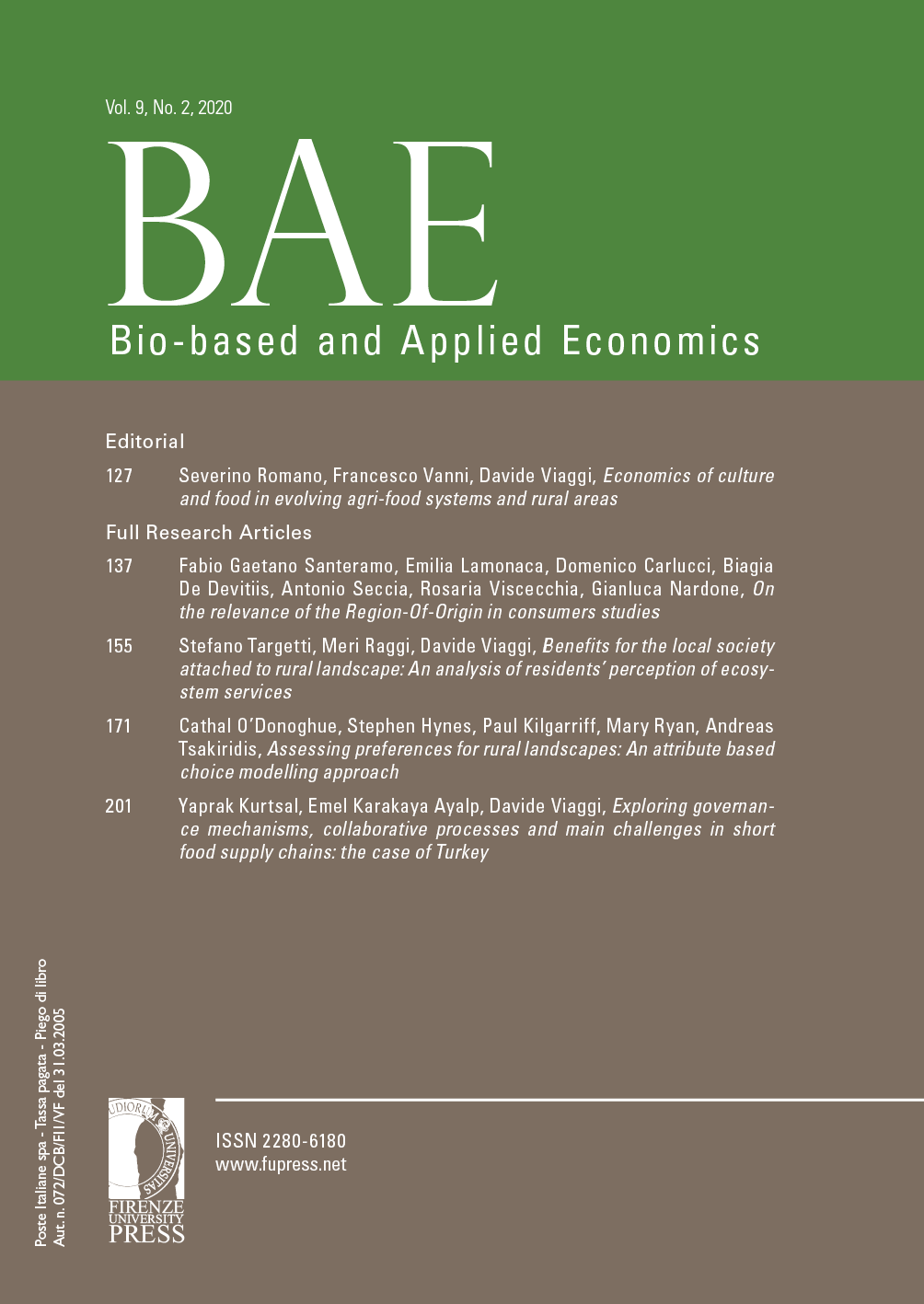Published 2020-11-05
Keywords
- Sociocultural valuation,
- ecosystem disservices,
- social preference,
- values,
- Emilia-Romagna
- agriculture ...More
How to Cite
Funding data
-
Seventh Framework Programme
Grant numbers 289578
Abstract
Ecosystem services are the benefits for society deriving from ecosystems. The perception of ecosystem services by local residents is relevant to understand the extent to which such services contribute to society and regional development. The objective of this study is to assess the perception of ecosystem services associated to rural landscape by local residents and to use them to respond to two main questions: Are residents able to attribute flows of services from specific landscape elements to the different socioeconomic sectors? Are such perceptions affected by the different landscape features of the area of residency (e.g. rural vs. urban dwellers)? The analysis is carried out using data from a survey (n=295) in a rural area located in North Italy (Po Delta lowlands, Province of Ferrara). The results show that the urban population has a rather generic and positive consideration of ecosystem services associated to rural landscape elements and that perception is largely related to their recreational experience. The rural population has a more complex understanding of services and is more prone to acknowledge disservices associated to specific elements and/or specific socioeconomic sectors. Such differences are likely connected to a more direct experience and to the different spatial scales that affect the perception of ecosystem services. The results indicate that cultural services such as recreation and actions linked to the promotion of the territory are commonly acknowledged. On the other hand, initiatives to enhance the awareness of less visible services (e.g. regulation services) would be useful for improving the valorization of specific landscape elements.






